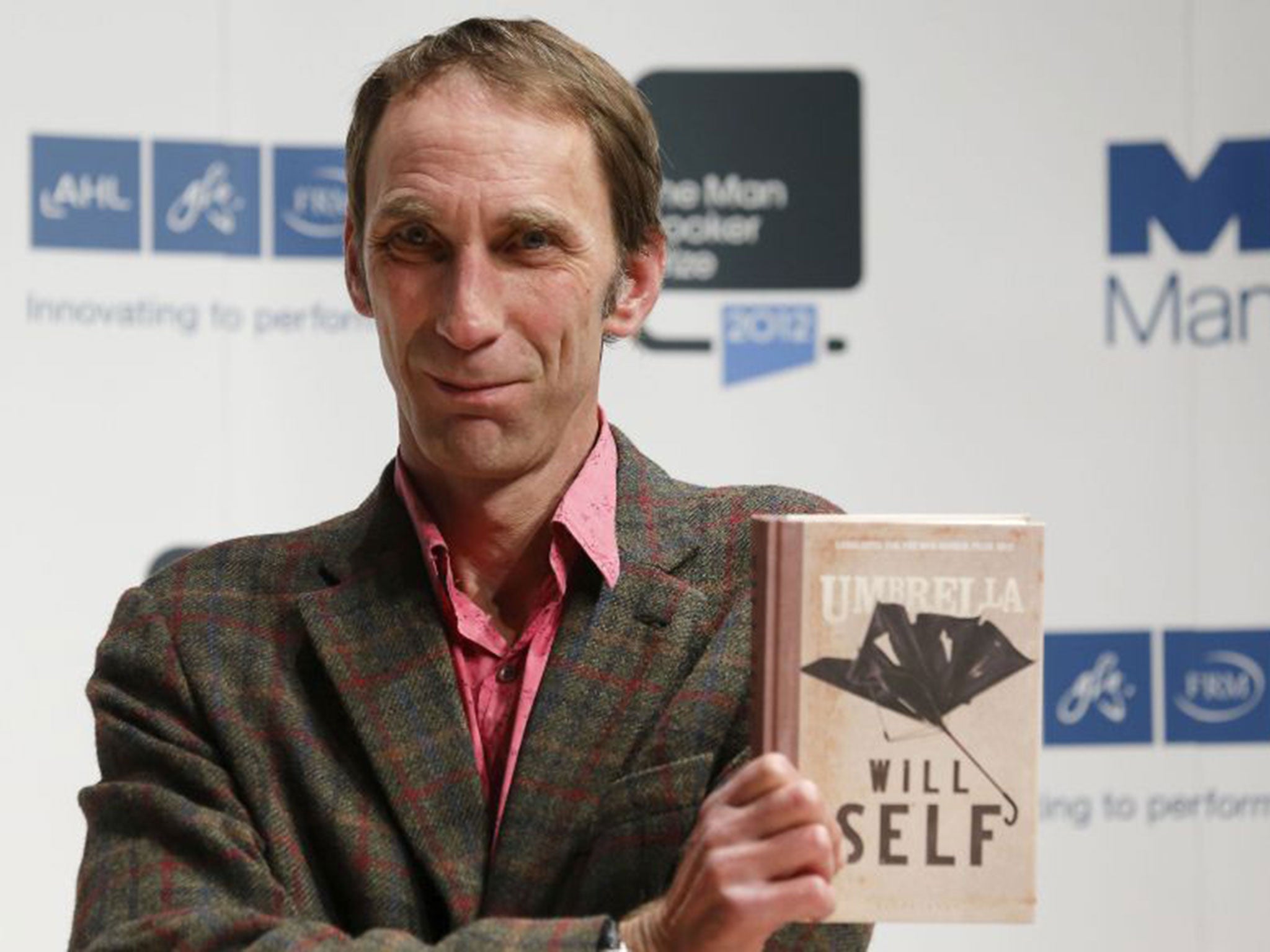How to read Will Self: Unlike 'talented mediocrity' George Orwell, you must approach this writer dictionary in hand
Will Self may be right to condemn the resolute plainness of George Orwell's prose. Just don't try approaching his own work without a decent dictionary, says James Kidd

Will Self, the novelist, critic and broadcaster, has chiselled a successful career out of being a sesquipedalian. This, as Self noted in 2012, means "a lover of obscure words" and is brandished more often as an insult than a panegyric. Self's engorgement on verbiage is often accompanied by a concomitant commitment to berating dull language. In his latest broadside against the limits of plain speaking and tedious writing, he takes to task that "talented mediocrity" George Orwell.
The centre of Self's objections is Orwell's 1946 essay, "Politics and the English Language", which argues: "Modern English, especially written English, is full of bad habits which spread by imitation and which can be avoided if one is willing to take the necessary trouble." These bad habits include allowing words to become phrases, the unnecessary use of foreign idioms and idle use of "dying metaphors" such as Achilles heel.
Orwell's despair at "the slovenliness of our language" conceals for Self "old-fashioned prejudices against difference itself". In the article for the BBC, he adds that Standard English is a fossil that has long been superseded by African American Vernacular English, which "offers its speakers more ways of saying more things – you feel me?"
Finding more ways of saying more things could describe Self's entire oeuvre (sorry, George). Why use one syllable when 23 might do? As he once said: "I'd observe that English, being a mishmash of several different languages, had a large and exciting vocabulary, and that it seemed a shame not to use it – especially given that it went on growing all the time, spawning argot and specialist terminology as freely as an oyster does its milt."
From the first, quite ordinary sentences would suddenly scoot off the page thanks to Self's striking coinage. "Ward 9", from his first book of stories, The Quantity Theory of Insanity, contained this sentence: "Tom rolled his lovely eyes back in their soft, scented sockets as if picturing the psychiatrist's matitudinal routine." My Kindle and Word dictionaries both drew a blank at matitudinal. Luckily, Nabokov's "matitudinal swoon" helped me discover that the word derived from "matin, an ecclesiastical duty performed early in the morning". In Cock and Bull, another character "stopped and looked at me, slope-shouldered, ectomorphic". Frankly, the online Encyclopaedia Britannica wasn't much help: "A person is classed as an ectomorph if ectomorphy predominates over endomorphy and mesomorphy in his body build..."
Self shows little sign of slowing his pace. In his new novel, Shark, his gush of a narrative flow blends all manner of registers into an unbroken multi-consciousness (or something): "He re-experiences this metempsychosis [transmigration of the soul] now: the hydrocephalic [swollen due to water on the brain] brow of his foetal self, its vestigial [atrophied, functionless due to evolution] limbs, its premature thumb-suck and the neon-blue delta of arteries worming over its fontanelle [the soft spot between the cranial bones of an infant's skull]."
Even Self's blog requires a decent dictionary and set of cultural references. The upthrusting Shard is "a teasing a la recherche de priapisme perdu". The book festival is a phenomenon because "serried municipalities have figured out that, as desperate writers will do almost anything for no money whatsoever, it's a cheap way of inculcating their miserable and isolate burghs with a little kulturkampf".
It is easy to mock Self's mockery of Orwell – ridiculously easy if yesterday's reader comments are anything to go by. "Self suffers from verbal diarrhoea which obfuscates rather than illuminates his meaning," wrote one outraged poster. Yet his exultation in and celebration of English as a living language that swoops from the medical to the Anglo-Saxon, from the Latinate to the phonetic ("Waa-waa-waaa! W'waaa") is bracing at a time when most novels are in thrall to the cat-sat-on-the-mat school of prose.
Perhaps it's because of spellcheck or the exigencies of global business English, perhaps it's because we read on the bus rather than in the armchair, perhaps it's because IQs are falling, but this is an age that misunderstands Hemingway's terseness as simplicity and one in which James Patterson is the world's best-selling novelist: "Dressed now in a black leather jacket, black jeans, black polo shirt, and black harness boots, Marcus Sunday hurried..."
Come on, James. Why not make that jacket obsidian, the jeans melanoid, that shirt atramentous, those boots stygian? Here's to Will.
Join our commenting forum
Join thought-provoking conversations, follow other Independent readers and see their replies
Comments
Bookmark popover
Removed from bookmarks